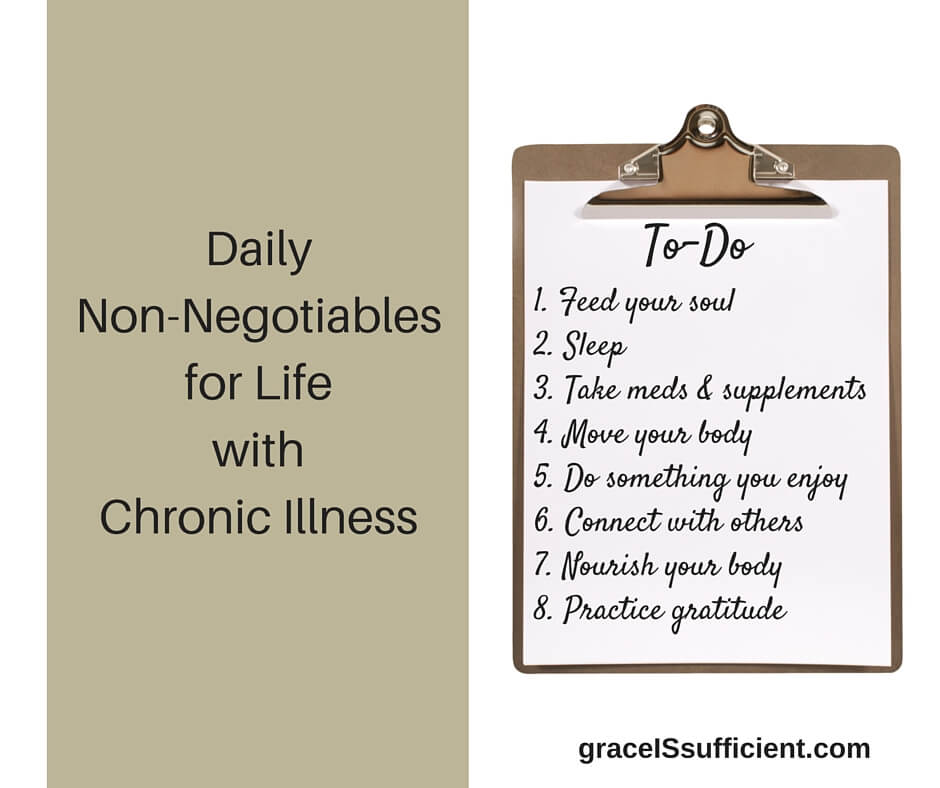What do you do when your “I get to” turns into “I have to”?
My husband and I just had this discussion the other day. We were talking about something that I was going to do that evening and I referred to it as an “I have to”. He corrected me by saying it was actually an “I get to”.
I understand his desire to help me re-phrase and re-think. He wants me to be happy and positive. Who wouldn’t want that for their wife? He also knows I’m working hard on my naturally cynical, pessimistic nature. (Well, actually, God’s working on it – but I’ve finally quit fighting as much and I’m letting Him sand this clay creation of His.)
But there is a flip side to this.
This event was happening on a day I woke up in a lot of pain. The previous day had been filled with a funeral, a stressful situation, and bad news. I had been out and active from 10 am until 5 pm. My body was toast.
The event I so lovingly referred to as an “I have to”, was that my daughter and I had tickets to see the Price Is Right live on stage. I love having these little getaway times with my kids, one on one. I was excited to just hang out with her and have a fun evening.
But pain and other symptoms can quickly change our “I get to” into an “I have to”.
I explained to my husband that some days it’s not simply a matter of changing our perspective. Some days an event turns into something we have to endure no matter how much we’ve been looking forward to it. Sometimes we choose the activity despite the consequence because it’s just that important to us.
As I thought about going to the stage show my thoughts ran to the noise, crowd, sensory overload, pain, discomfort, fatigue – all the while having to laugh and smile so I didn’t appear like an ogre to my daughter and those around me.
What I learned was that it’s possible to change the “I have to” back to an “I get to” – but it takes some work and planning!
Here are 7 things to remember when we’re facing our “I have to”:
- Don’t add more stress to your body by getting upset. Your mental perception will affect how your body feels. That’s why researchers say laughter and watching comedies helps those in hospitals heal quicker. They’re still sick, they’re still in a hospital, but they’ve focused their mind on positive things.
- Take time prior to the event to calm your body and relax. If at all possible, arrange the day so you have plenty of quiet time. Take a nap, drink some tea, or just take some deep breaths and allow your body to relax.
- Eliminate sensory stimuli prior to the event. If you know you’re going to be faced with sensory assault, be sure to minimize stimuli as much as possible the day of the event.
- Drink plenty of water to stay hydrated and alert. Water is so essential to your body and brain function. Without you knowing, your body will start to experience stress from a lack of water before you even feel thirsty.
- Eat nutritious food that meets with the diet that is best for your particular body. On a day like this, you need nutrition to help! Plus, you don’t need any added stress to your body from foods that are toxic to you.
- Re-think the circumstances surrounding the event. For example – I was planning to wear my nice dress boots, but instead chose my sneakers. My legs were already in pain so wearing the boots would have made the next day almost unbearable. Don’t worry about what others are going to think – make sure you’re as comfortable as possible. (Well, don’t wear your pj’s to a wedding, but maybe choose flats over heels!) My husband also suggested that I take some inconspicuous earplugs with me so that if the noise level got to the point that it literally hurt, I could drown some of it out with the earplugs. Taking time to think through the event will allow you to come up with some coping tactics as well.
- Be open to canceling or rescheduling. No matter how hard you try or how positive you make your thoughts, you’re still going to have days where you just can’t keep a prior commitment. If you’ve tried your best to be able to attend, but your body just isn’t having it, you may have to cancel.





